Adobe Experience Cloud vs MailChimp
November 12, 2023 | Author: Sandeep Sharma
10
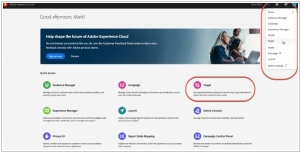
Adobe Experience Cloud gives you the most complete set of integrated digital marketing solutions available. It provides everything you need to organize, access, and personalize your marketing content. It gives you deep insights into what’s working with your customers and the ability to consistently deliver the best experiences to every customer across every channel.
40
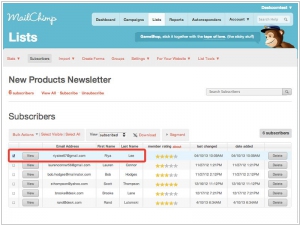
Online email marketing solution to manage contacts, send emails and track results. Offers plug-ins for other programs. Get insight about your subscribers and keep your contacts in one place with subscriber profiles. MailChimp helps you email the right people at the right time. In addition to our built-in segmentation and targeting options, you can automate triggered emails based on your subscribers' website activity.
Adobe Experience Cloud and MailChimp are both popular marketing software solutions, but they have distinct differences in their features and focus. Adobe Experience Cloud is a comprehensive suite of marketing tools that includes various modules such as Adobe Campaign, Adobe Analytics, Adobe Target, and Adobe Experience Manager. It offers features such as customer segmentation, personalized campaigns, analytics, content management, and optimization. Adobe Experience Cloud focuses on providing a unified platform for managing customer experiences across multiple channels and touchpoints. On the other hand, MailChimp is primarily an email marketing platform that allows businesses to create and send email campaigns, manage subscriber lists, and track campaign performance. It offers features such as email automation, A/B testing, audience segmentation, and reporting. MailChimp is known for its user-friendly interface and affordability, making it a popular choice for small to medium-sized businesses.
See also: Top 10 Marketing software
See also: Top 10 Marketing software
Adobe Experience Cloud vs MailChimp in our news:
2023. Adobe brings product analytics to its Experience Cloud
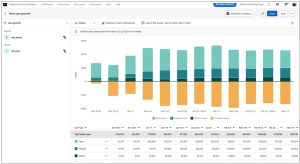
Adobe has introduced a novel analytics solution named Adobe Product Analytics, intended for product teams. The service is designed to provide such teams access to crucial metrics related to product lifecycles that were traditionally compartmentalized within different teams within an organization and had to be obtained through data analysts. Adobe Product Analytics is built on the omnichannel Customer Journey Analytics (CJA) service, with product teams being the initial targeted users. However, Adobe plans to create solutions for other personas as well. With this solution, all CJA users now have a shared analytics language and framework. The service also features a guided analysis capability to assist product teams in posing the right questions to gain insights, such as identifying patterns in engagement over time or recognizing obstacles in transitioning users from app usage to higher engagement.
2021. Intuit to acquire Mailchimp
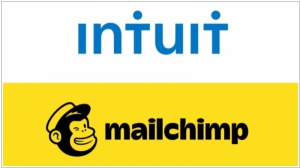
Intuit has made a significant move in the email marketing industry by acquiring Mailchimp for a whopping $12 billion. Although Intuit is not widely recognized in the email marketing space, this strategic purchase aligns with their ambitions to strengthen their position as a hub for small business growth and disrupt the small business midmarket. Intuit's flagship product, QuickBooks, is already a well-known offering among SMBs, and acquiring Mailchimp presents an opportunity to expand their service offerings to their existing customer base. While it may seem like a bold move, Intuit's decision is likely driven by the anticipation of significant corporate synergies that will outweigh the initial investment.
2021. Mailchimp moves into e-commerce
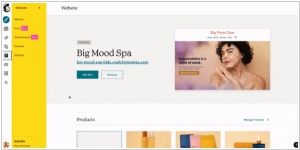
Over the past few years, Mailchimp has evolved from a simple newsletter platform into a comprehensive marketing company. While the platform has already provided integrations with various e-commerce websites, it is now introducing its own online stores tailored to small and medium businesses. Additionally, Mailchimp is launching a new appointment booking service. These new offerings are part of Mailchimp's "Websites & Commerce" plans, which include a free tier providing most of the essential functionalities. Users on the free plan will incur a 2% transaction fee. For $10/month, Mailchimp will remove its branding, provide access to email and chat support, and reduce the transaction fee to 1.5%.
2020. Mailchimp launches new AI marketing tools
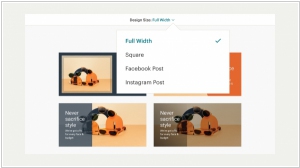
Mailchimp has introduced a suite of AI-powered tools aimed at providing small businesses with the same advanced capabilities utilized by their larger counterparts. These tools encompass personalized product recommendations for customers and predictive analytics for targeted marketing, enabling businesses to identify potential buyers more effectively. Additionally, Mailchimp has unveiled a new AI-driven tool that assists business owners in creating visually appealing assets, leveraging its acquisition of Sawa. Furthermore, a tool has been introduced to aid in crafting compelling email subject lines, helping businesses enhance their communication strategies.
2019. Latest Adobe tool helps marketers work directly with customer journey data
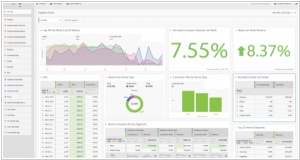
Adobe is actively advancing its Analytics capabilities within the Adobe Experience Cloud, an integrated platform designed to collect and analyze customer data for improved insights. Recently, the company introduced a new analytics tool that empowers employees to directly engage with customer journey data, aiming to enhance the overall customer experience. The customer journey encompasses numerous systems, including a company's data lake, CRM, and point of sale. This tool effectively consolidates data from multiple systems and channels, aggregating them within the data analysis workspace, which was initially announced in July. By centralizing and streamlining the data analysis process, Adobe is equipping businesses with the means to comprehensively understand their customers and optimize their interactions.
2019. Mailchimp acquired e-commerce platform LemonStand and broke up with Shopify
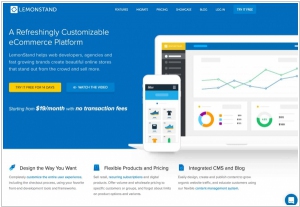
Mailchimp has made the decision to discontinue its app that allowed users to utilize their Shopify data for creating targeted email campaigns. This move came after disagreements arose between the two companies regarding the sharing of customer data. Interestingly, prior to parting ways with Shopify, Mailchimp quietly acquired LemonStand, a smaller competitor of the e-commerce platform. This acquisition was aimed at enhancing Mailchimp's platform by incorporating more integrated e-commerce features. It serves as an indication of the growing importance of Mailchimp's e-commerce business. In the past year, Mailchimp collaborated with Square to introduce shoppable landing pages, showcasing the company's dedication to developing native e-commerce functionalities. While Mailchimp continues to expand its platform's e-commerce capabilities, it remains open to collaborating with third-party providers (excluding Shopify, the largest among them) to offer additional functionality to its users.
2018. Mailchimp partnered with Square to launch shoppable landing pages
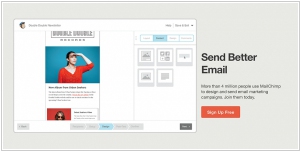
Email newsletter service Mailchimp has announced a collaboration with Square, enabling its users to create landing pages integrated with e-commerce functionalities. These shoppable landing pages serve as an additional sales channel for businesses, facilitating the selling of limited-edition products and targeted promotions. While Mailchimp's landing pages have been available for some time, their primary purpose was to capture email addresses or direct users to a store. With this partnership, customers can now establish complete shopping experiences with built-in payment options directly on these pages. To simplify the process, Mailchimp provides a range of pre-designed templates and a user-friendly drag-and-drop builder. Square will apply a flat processing rate for transactions, while Mailchimp offers this service at no additional cost to its users.
2018. Adobe acquires Marketo for $4.75 billion
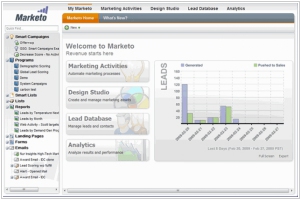
Adobe has announced its acquisition of the marketing automation company Marketo for a significant $4.75 billion. This strategic move positions Adobe strongly in the enterprise marketing arena, pitting it against major competitors like Salesforce, Microsoft, Oracle, and SAP. The acquisition not only bolsters Adobe's Marketing Cloud portfolio but also grants access to Marketo's expansive customer base of 5000 organizations. This presents a valuable opportunity for Adobe to drive revenue growth in this particular segment of its offerings, while intensifying its competitive edge within the enterprise market. With the integration of Marketo, Adobe is poised to further solidify its position and expand its reach in the realm of marketing automation.
2017. Adobe Campaign gets AI-features
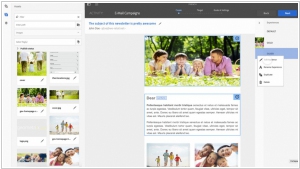
Adobe has unveiled several enhancements for its email marketing tools in Adobe Campaign. While many of these features are already accessible, such as improved dashboards, new email templates, and enhanced support for multilingual campaigns, the most intriguing additions are the new machine learning-powered capabilities. These advancements enable the identification of optimal subject lines for emails and, in the near future, suggest personalized images for specific recipients who open marketing emails. Another noteworthy predictive feature demonstrated by the company is a tool that predicts customer churn based on their email engagement patterns. Although this employs conventional machine learning techniques, the accuracy of such predictions heavily relies on the quality of the input data. When combined with data from Campaigns, this tool can anticipate when a customer is likely to unsubscribe from a service, offering valuable insights to businesses.
2017. Mailchimp’s marketing automation tools are now available for free
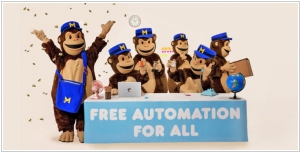
The mailing service MailChimp provides a range of advanced marketing tools to its users, including the ability to follow up with online shoppers. Excitingly, starting today, these advanced marketing automation services are being offered for free to all MailChimp users, even those on the free plan. This means that any online business can now effortlessly create automatic emails that are triggered, for instance, a day after a virtual shopping cart is abandoned or a day after a first purchase is made. Additionally, users can establish a series of welcome emails or utilize the service for transactional messages such as receipts, shipping updates, or invoices. This expansion of free services from MailChimp empowers businesses to enhance their customer communication and engagement without incurring additional costs.


